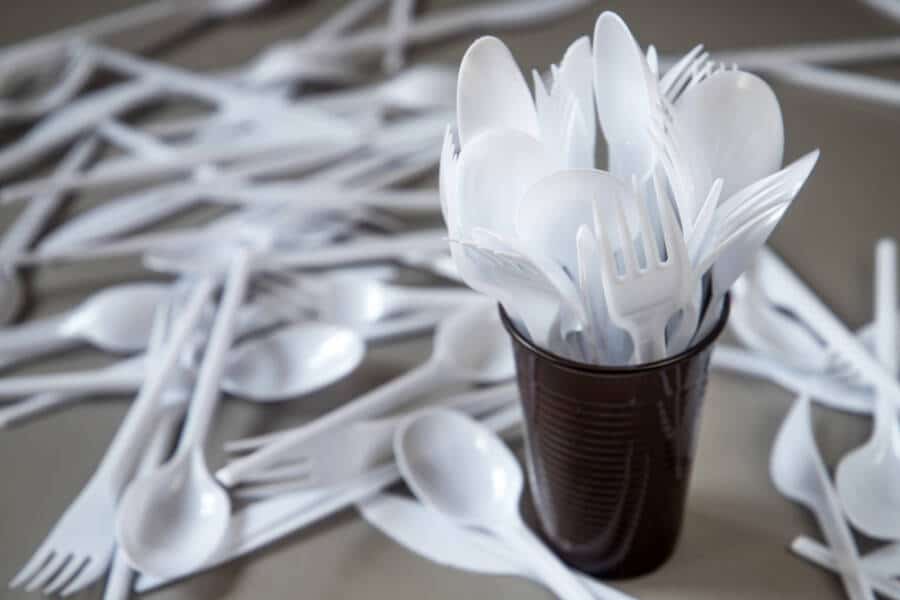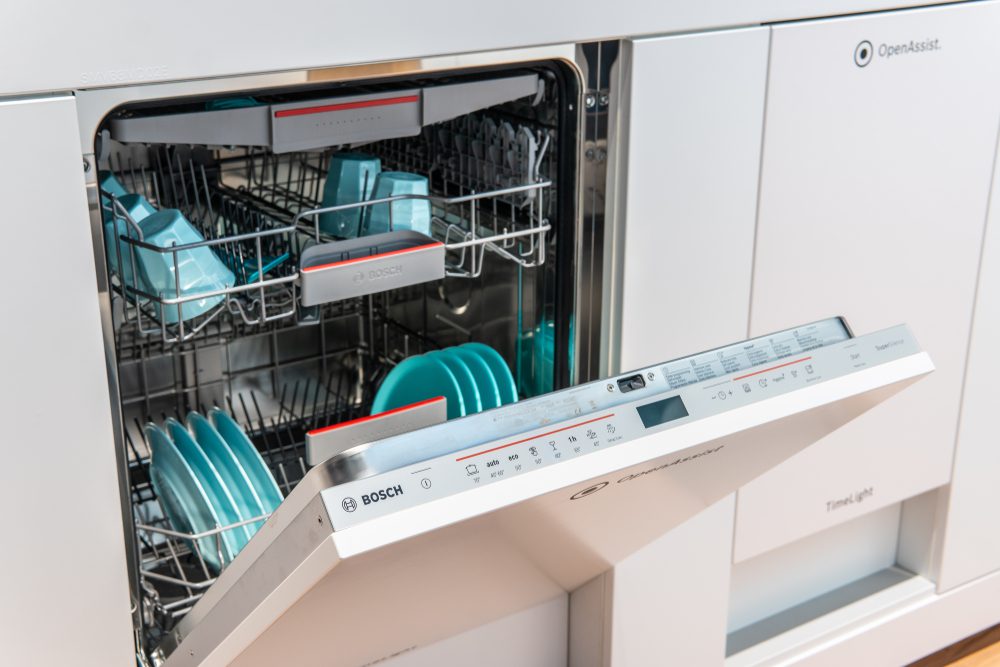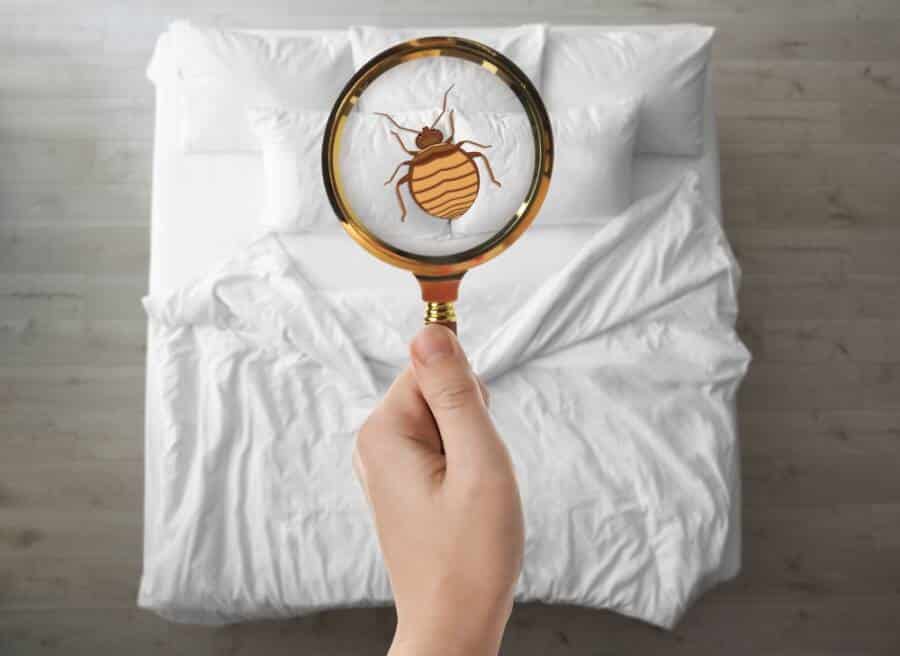Have you ever noticed that your shower drain smells like rotten eggs?
Clean, fresh towels and a soothing bathtime experience should have nothing to do with the smell of rotten eggs. No amount of candles could get rid of a bad odor. Sometimes, for various reasons like bacteria in the drain breaking down organic matter or faulty plumbing, your space can develop a bad odor. The good news is that you can get rid of it.
Once you identify the problem, you can tackle it and make your bathroom smell clean again. In today’s article, we’ll talk about why your shower drain smells bad and how to solve the issue. We have many things to take care of, so let’s begin!
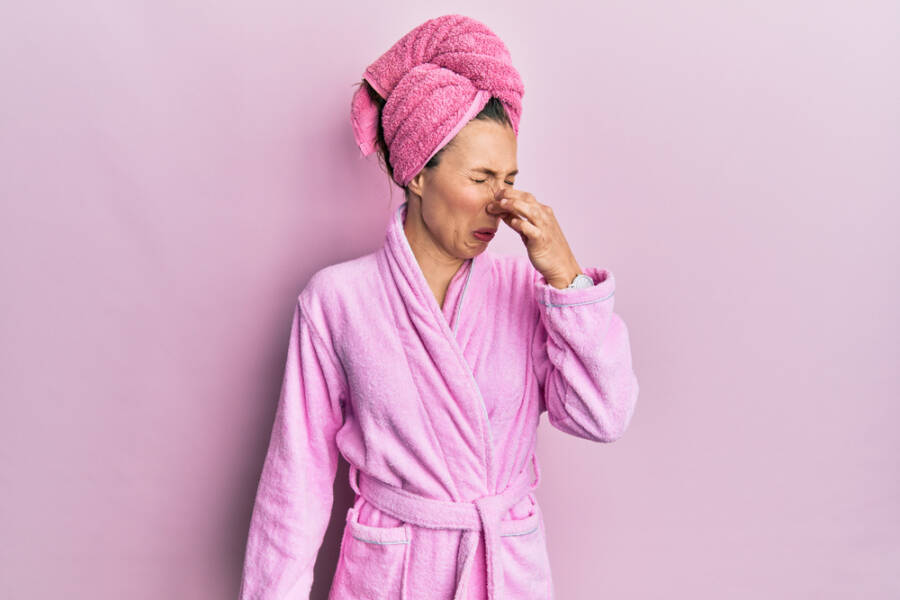
But before we begin, here’s something you should know about P-traps:
You’ll hear the term “P-trap” a lot in today’s article; therefore, it’s important to explain what this plumbing device is and what it does. A P-shaped section of pipe that connects the shower or sink to the drain system is known by several names, including U-trap, drain trap, and P-trap. This pipe could be made of plastic or metal, and its job is to hold some water in the bottom of its P-shaped section.
The reason why water is stored in this section of the trap is to stop sewage gases from exiting the sink or shower and returning to the drain system. Nothing can put a stop to these things without a P-trap. Keep in mind that these gases could also be dangerous, aside from being stinky. A simple P-trap could help you solve the issue, and according to experts, it’s required by building code.
Potential issue no. 1: clogged plumbing vent
Unfortunately, a clogged vent can suck the water in a P-trap and dry it quicker. Several open vent pipes usually go up and out of the roof at the end of the plumbing drain systems. Their role is to prevent vacuums from being created while allowing fluids to flush down the system to flow.
If your vents are clogged, whether it’s due to a bird’s nest, debris, a trapped rodent, or a bee’s nest, when someone flushes liquids down the drain through the shower or toilet, it will form a vacuum. Gases can escape from the drain when a vacuum pulls water from a neighboring P-trap, lowering its water level. If you have a taller home, experts say you’re more likely to experience this problem since the flushed fluid has a longer path to travel.
Solution: clear the vent
If your shower drain smells bad, an easy way to solve the issue is by cleaning the vent. You can use a snake (such as this one) from the inside if you have access to a cleanout, or you can do that from the roof.
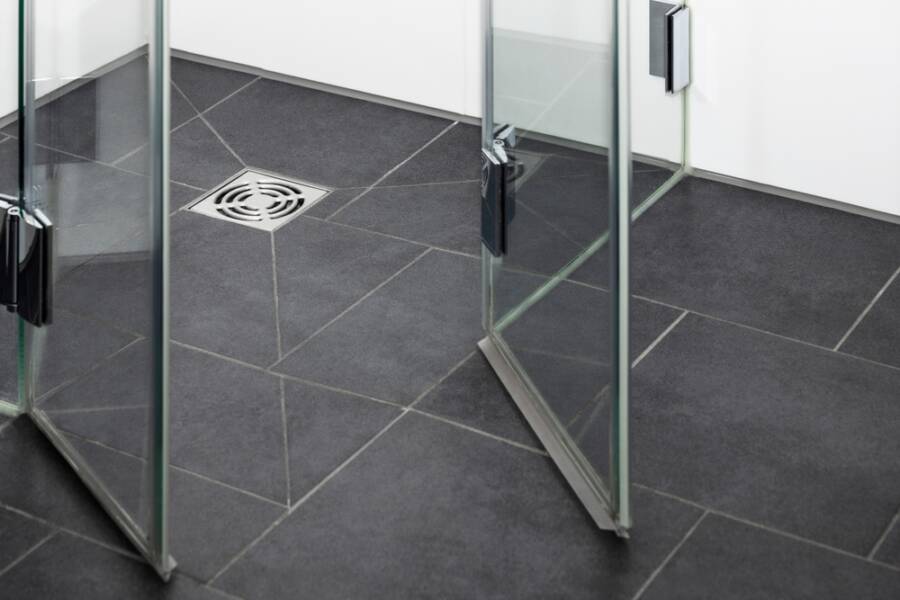
Potential issue no. 2: sulfur water
Sometimes, you might think that your shower drain smells awful, but what actually happens is that the water running down is the stinky one. According to plumbers, in homes with well pumps, there might be sulfur water coming from underground.
While in different situations sulfur can be beneficial for your health, there’s no doubt it smells like rotten eggs. Unfortunately, this bad odor could also expand to your entire bathroom and even your whole home.
Solution: shock your well system
In many cases, you can quickly eliminate the stinky smell from your plumbing by shocking the well with a strong chlorine solution. This helps remove bacteria and provides relief from the odor for around 1 to 2 months.
However, this is NOT a DIY method. It’s best to call a professional to handle this task for you. If your budget allows, consider a more permanent (though not budget-friendly) option: installing a whole-house well water filter. This will eliminate the sulfur smell and other impurities from the water.
Potential issue no. 3: your P-trap is dry
When your P-trap runs dry, it’s no longer strong enough to stop sewer gasses from escaping the shower drainpipe. This can usually happen in guest bathrooms due to not being used as often. Moreover, if you don’t have a fresh shower to refill the cap, the trapped water will evaporate eventually.
Solution: run water into the drain
If your shower drain smells bad, you can quickly solve the issue by turning on the shower. Doing so for a few minutes will help refill the trap, so the sewer gasses won’t escape.
Make sure you set a reminder to do this for the bathrooms that aren’t used often. The frequency of this process depends on different factors, such as the location of the drain, your home’s humidity level, the season, and how often the drain is used. To keep things simple, you can repeat the process every two weeks.
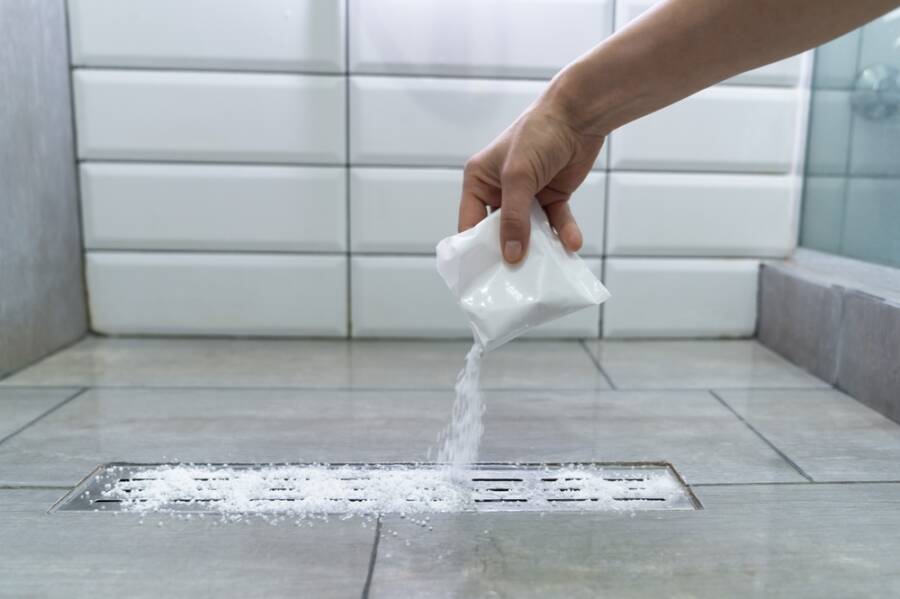
Potential issue no. 4: biofilm
Biofilm is another common reason why your shower drain smells funky. Biofilm is a term that describes several types of bacteria consisting of different microorganisms whose cells adhere to one another to form a slimy, mold-like film.
You can typically see biofilm in places that are constantly damp and where there’s lots of organic material for bacteria to feed on. Since your P-trap is often filled with hair, water, skin oils, cells, soap scum, and other debris, shower drains are prime spots for biofilm to grow. If you have a bathtub, clean it properly after each use, because biofilm loves it too.
Moreover, as the bacteria break down these materials, the entire process will emit a terrible odor, so no wonder why your shower drain smells like rotten eggs.
Solution: clean your drain properly
If your shower drain smells, the quickest way to solve the problem is to give it a good clean. A fresh drain will ensure that biofilm won’t make your bathroom stinky. You can clean it with a regular solution for drains, or you can create your DIY cleaner using a combination of vinegar and baking soda.
As these two ingredients react when they’re combined, you’ll get a foamy solution that will help scour the biofilm from the pipe. When you’re done with that, flush hot water down the drain to remove any remaining biofilm.
Potential issue no. 5: your drain pipes are cracked
The fifth reason why your shower drain smells is because your pipes are cracked. Over time, they can fracture and shatter, especially if you have cast-iron pipes and PVC elbows and joints. If this happens, sewer gases might travel up the pipe and disappear beneath the bathtub.
This can cause a terrible rotten egg smell, and the worst part is that it can lead to serious damage and leaks to the drywall or other areas in your home. Even though it might seem like your shower drain smells, the odor might be coming from the floor beneath the tub.
Solution: repair the pipe
Once you find where the leak is coming from, make sure you fix the pipe ASAP. If your pipe is made of cast iron, you might have to remove the entire pipe because corrosion is more likely to settle in.
PVC pipe repair might be simpler to fix because all that’s needed is to cut the broken pipe and replace it with a new length and a few connectors. To prevent the growth of mold, don’t forget to remove any moist insulation and damaged drywall.
Do you know any other reason why your shower drain smells? Let us know in the comments below! If you find this article helpful and you’d like to check out something else from The Home Team, here’s a good post for you: Looking for Beautiful Plants to Keep Rabbits Away? Check Out These 10!

